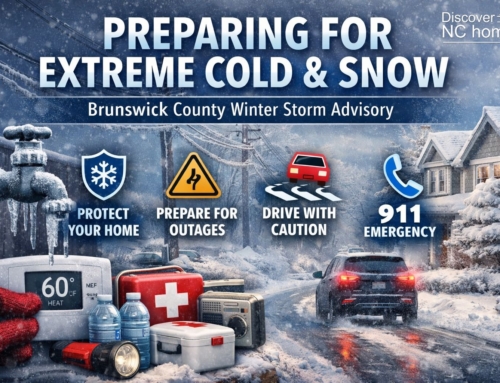Today I wanted to talk about propane tanks. This whole past year within a transaction, it has been a little bit of a source of controversy between buyer and seller and how the contents of that tank are handled.
Just for those who don’t know down here, propane typically runs in our homes a fireplace, it will run a hot water heater at times, hot water on demand, for sure and even a standard, typical hot water heater. It will oftentimes run a gas cooktop if you have one and not as much, but we’ll see what’s called the dual fuel heating and air system where it will run heat under a certain temperature.
So those are the appliances that the propane tank runs. So a number of years ago, during the transaction, a seller could actually go to their LP gas company and find out about how much content was left in that tank. And these tanks, they hold anywhere from 500 to almost $1,000 worth of propane. So we’re not talking a small number. So the propane company would come out, prorate that, seller would get a bill, send it to the attorney and at closing, it would be a line item on our closing statement that the buyer reimbursed or bought – if you will – those contents, that gas from the seller.
Since… I don’t know… maybe five, seven years ago, our contracts have changed. They are now written standard verbiage in our sales contract that the contents of that tank at closing become the buyer’s. So we no longer as sellers, we can not prorate that and expect the buyer to pay for it. It may be different in a number of states, but that has come to a lot of surprise, especially to the seller, that they cannot get paid for the contents of that tank.
So I guess lesson here is: if you have a propane tank, don’t get it filled while your house is on the market, unless you obviously need to. And if you need to, maybe don’t fill it all the way up, maybe fill it up just for a few months of use until you can get that transaction closed.
So again, just to recap, used to be that the seller could get reimbursed from the buyer. For the contents of that tank now at closing, whatever the seller has in that becomes buyer’s possession at closing. So there is no money transferred for the gas in that tank. As always, thank you for having me. If you have any questions, let us know.
If you are interested in buying a home in the Brunswick area in North Carolina, check out our search page.
About Nolan Formalarie
Nolan Formalarie has been in the North Carolina Real Estate Industry for over 8 years and enjoys every minute of it. He is involved in every aspect of the industry including selling and purchasing residential property, home watch services, property management, association management and construction.





